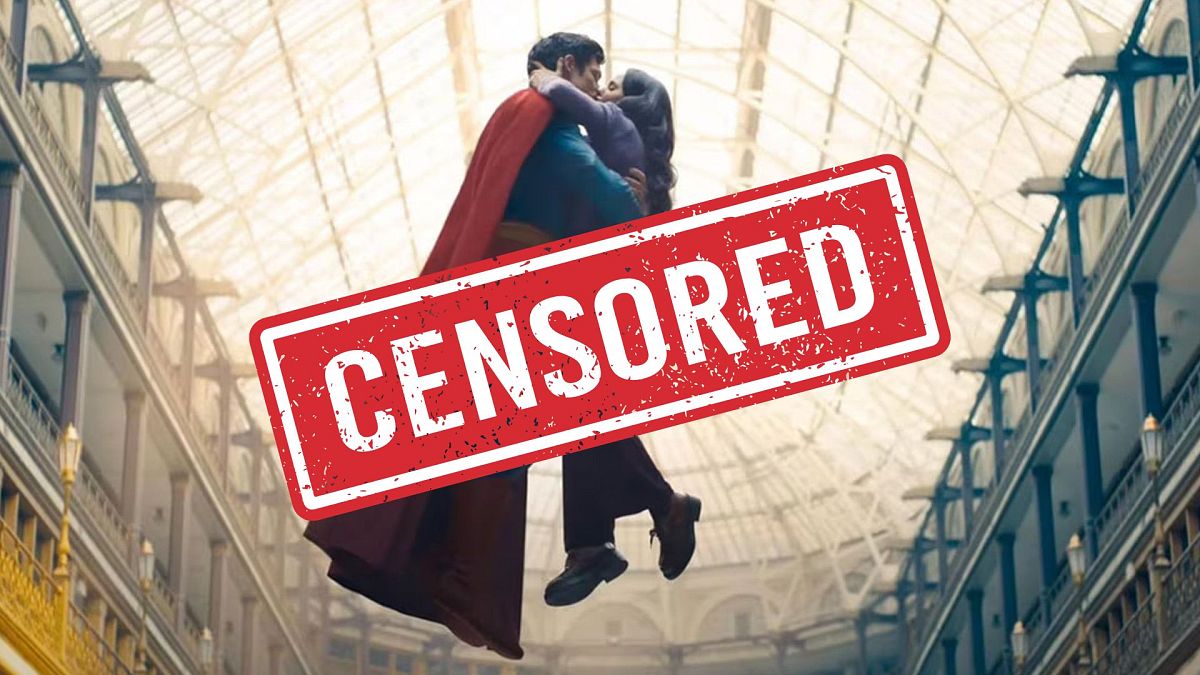Published on •Updated
Indian audiences watching the latest Superman film were left confused when the action abruptly skipped ahead – not once, but twice – just as the Man of Steel (David Corenswet) leaned in to kiss Lois Lane (Rachel Brosnahan).
India’s Central Board of Film Certification (CBFC) had cut the kissing scenes, including a cinematic mid-air floating kiss in the film’s final moments, branding them “overly sensual” and unfit for Indian cinemas.
The decision has reignited debate around censorship, hypocrisy, and outdated moral codes in the country.
Critics have slammed the CBFC for routinely allowing films filled with graphic violence, sexual assault, and misogyny – often in movies granted a “U” (universal) rating – while censoring something as tame as a consensual kiss in a PG-13 Hollywood comic book movie.
“CBFC would allow horrific scenes of violence and sexual assault in a U certified film that kids are freely allowed to watch, but won’t allow consensual kissing in a U/A comic book movie that kids should watch under adult supervision” wrote one user on X.
Another said: “The “morality” of censorship aside, the way they’ve managed to mangle the flow is atrocious. Awful editing job all around by the CBFC.”
The CBFC has increasingly come under fire for what critics describe as politically motivated and inconsistent decisions.
Last year, it blocked The Apprentice – a biopic of Donald Trump – after its director, Ali Abbasi, refused to comply with demanded cuts. “I ran away from Iranian censorship only to meet corporate censorship of the US. Now India. Really?” Abbasi said. “Censorship seems to be an epidemic at the moment.”
The board has also made headlines for forcing other bizarre and overly cautious edits, such as digitally replacing a middle-finger emoji with a clenched fist in the Brad Pitt-led F1 movie, and cutting several nude scenes from Christopher Nolan’s Oscar-winning Oppenheimer.
Meanwhile, viewers have called out the board’s glaring double standards.
While a kiss between Superman and Lois Lane is deemed too provocative, Bollywood films like Animal – which was widely criticised for glorifying misogyny and toxic masculinity – are released with ease.
Similarly, controversial films such as The Kashmir Files and The Kerala Story, both accused of promoting Islamophobic narratives and distorting history, were greenlit with little resistance and even received support from political figures.
In our review of Superman, we said: “By ditching not only the doom and gloom of the Snyderverse but also the tiresome need for an umpteenth backstory, Gunn starts in medias res to better embrace the spirit of the seemingly bygone era of campy comic books. And it works. This fast-paced adventure looks and feels like a comic book transposed onto the big screen, with all the unapologetic strangeness, colourful palette and intentional corniness that befits a “naive but well-intentioned” boyscout who will take the time to save a squirrel in peril.”
Read our full review here.

